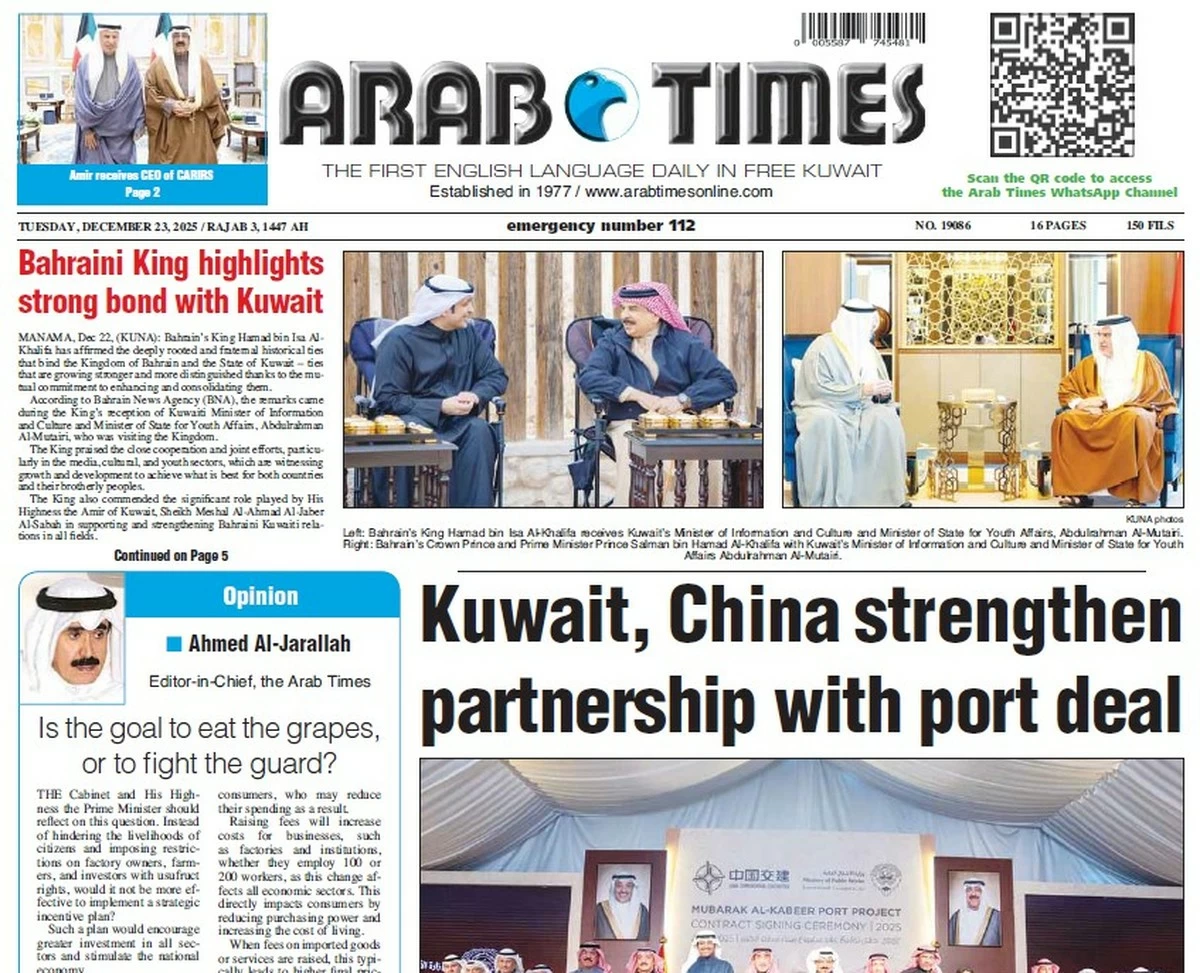A large segment of citizens is asking the Cabinet these questions: Does the government truly intend to encourage investment in Kuwait? Are the current measures intended to support this goal, or to intimidate investors instead? This concern arises as banks have stopped approving loans for institutions and companies unless they submit a property description certificate in accordance with government requirements. As a result, many projects and companies are stalled. While the requirement for this certificate seems unnecessary today, it is a legacy of fifty or sixty years ago, with the law unchanged. While it is true that the Cabinet suspended the requirement for a property description certificate, it did not notify the banks to facilitate matters for their clients. As a result, some mortgage transactions, which previously helped encourage investment and ease the burden on business owners, have come to a halt.
This is why I have repeatedly warned that this certificate represents a major obstacle. For instance, if a citizen wants to sell a property, requesting a property description certificate is understandable. But why should companies or institutions that have been operating at full capacity for 40 or 50 years be required to obtain this certificate every time they submit an application to any government agency? What purpose does it serve? It might as well be called a “disability certificate.” Ironically, a citizen installed a sunshade in front of his house on his own property. Municipal employees arrived and ordered him to remove it. He explained that his neighbor had installed a similar sunshade. The employees replied that his neighbor had a license and a property description certificate. The citizen agreed and said he would obtain the necessary license and certificate. At that point, the employees told him, “You must demolish the sunshade first and then apply for a license.” Another obstacle, more serious and complex than the first, is the decision to halt the issuance of commercial licenses for industrial, service, and agricultural plots, as well as the prohibition on selling usufruct rights, among other restrictions.
This decision has negatively affected local markets. Does it truly encourage local investment, or has it simply added more burdens for citizens? Another puzzling obstacle is that every business owner with a license in industrial zones must also rent a shop in the capital city, even if their entire operation runs from company headquarters in Shuwaikh Industrial Area, Subhan, or other locations. What purpose does forcing them to rent such a shop serve? Do these procedures make life easier for people? Has the committee tasked with amending laws not yet addressed regulations that have been in place for decades, despite the world having changed greatly? Today, countries compete to attract investment by all means and avoid procedures that hinder business and economic activity.
Based on the above-mentioned points, when an investor encounters 20 obstacles, each taking several months to resolve, they are likely to abandon their investment and escape this vicious cycle. Alternative solutions must be explored, beyond the requirement for a property description certificate and restrictions on selling usufruct rights, as well as other measures that hinder commercial and industrial activity, in order to revitalize local markets. Economic reports indicate a slowdown in buying and selling activities, accompanied by a decline in the Relative Strength Index. I urge the Minister of Finance, the Minister of State for Municipal Affairs, the Minister of Commerce and Industry, and the Cabinet to take all necessary measures to facilitate investments in ways that encourage local economic activity, support the ongoing development process, help Kuwait reclaim its leading position, and strengthen its developmental role in the region. In the end, an important question to ask is - How many Kuwaiti companies have relocated to neighboring countries because they found facilities that allowed them to operate actively? Investors seek incentives, not obstacles.



